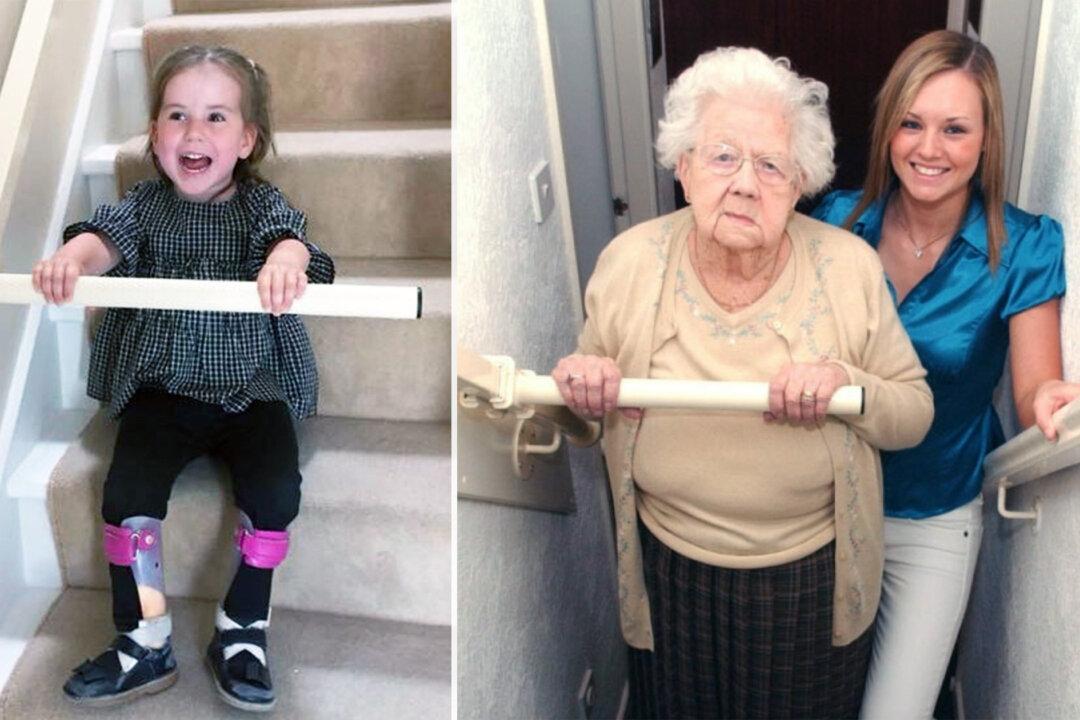Commissioned by her teacher, when she was aged just 15, to design something to help his father who suffered from a stroke to safely walk down the stairs, a British entrepreneur came up with an incredible mechanical gadget, called the StairSteady. Years later, her invention is on the market and is now changing lives for adults and children who struggle with stairs.
Ruth Amos is a mom, engineer, and inventor in her early 30s, living in England. She had wanted to be a lawyer until her design commission at school, which was inspired by a child’s toy, to create her “all mechanical” specialist handrail.





